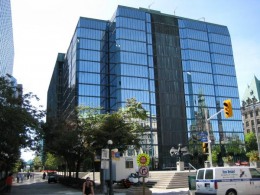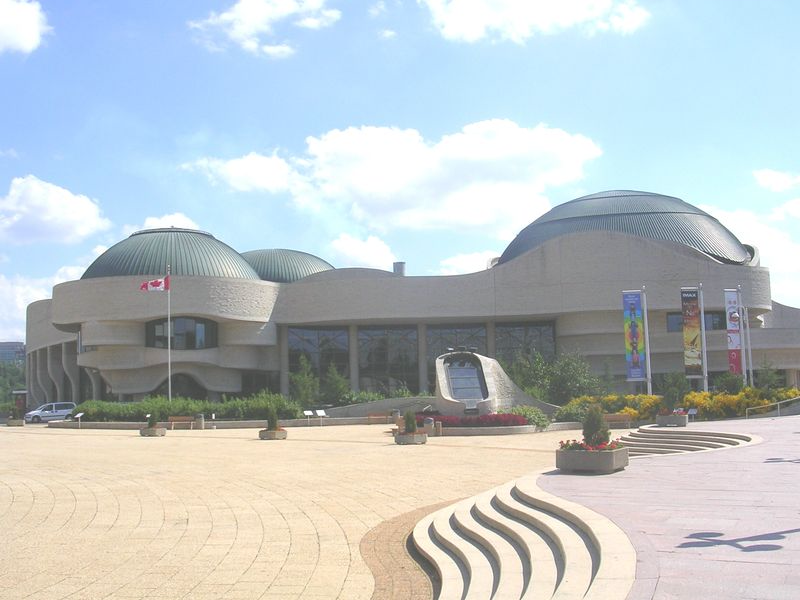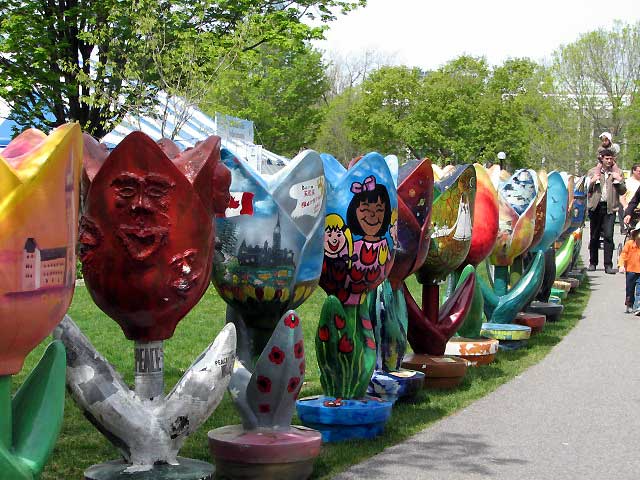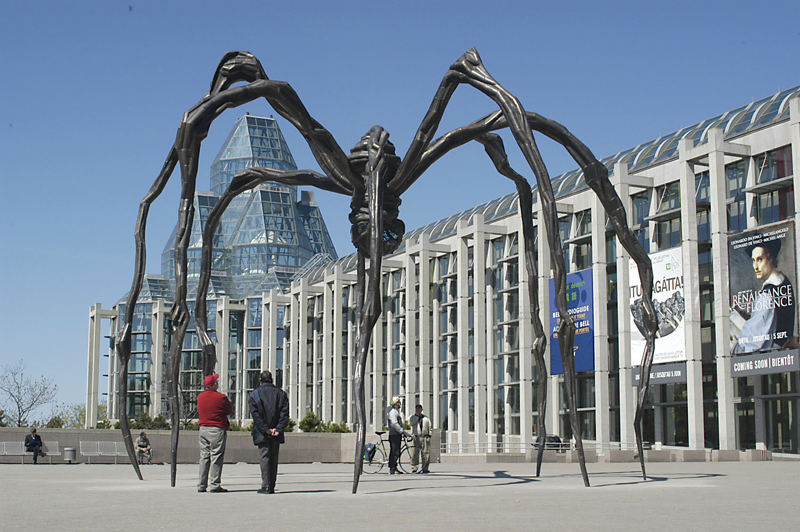
- •Семей 2011
- •Пояснительная записка
- •Содержание
- •Четыре типа чтения английских гласных Первый тип чтения английских гласных (алфавитное звучание)
- •1. Прочтите слова и объясните, почему они так произносятся:
- •2. Прочтите слова и объясните, почему они так произносятся:
- •3. Прочтите слова и объясните причину переосмысливания звукового восприятия английских гласных букв:
- •4. Прочитайте вслух следующие слова, обращая внимание на типы чтения гласных букв
- •5. Прочитайте следующие скороговорки как можно быстрее:
- •1. Вставьте "to be" в Present Simple, обращая внимание на личные местоимения.
- •2. Вставьте "to be" в Present Simple, обращая внимание на личные местоимения.
- •3. Переведите на английский язык, употребляя глагол to be в Present Simple и обращая внимание на употребление личных местоимений.
- •4. Закончите предложения. Используйте личные местоимения I / me и т. Д.
- •1. Прочитайте диалог по ролям, переведите его, выучите наизусть.
- •2. Выучите следующие слова и словосочетания наизусть:
- •3. Составьте свой диалог, используя нижеперечисленные фразы.
- •1. Выберите правильное слово. Используйте притяжательные местоимения:
- •2. Заполните пробелы личными или притяжательными местоимениями
- •1. Прочитайте диалог по ролям, переведите его.
- •2. Выучите следующие слова наизусть:
- •3. Переделайте диалог из упр.1, используя личную информацию и слова из упр.2, выучите диалог наизусть.
- •1. Поставьте следующие существительные во множественное число (обратите внимание на артикли: неопределенный артикль во множественном числе опускается, определенный артикль сохраняется).
- •2. Поставьте следующие предложения во множественное число.
- •3. Переведите на английский язык следующие пары слов.
- •1. Прочитайте текст, подставьте свои данные в пропущенные места, дополните текст личной информацией.
- •2. Выучите новые слова наизусть:
- •3. Просмотрите нижеперечисленные слова, они могут вам помочь при составлении текста о себе и своей семье.
- •4. Ответьте на следующие вопросы письменно:
- •5. Найдите все существительные во множественном числе в тексте «About myself» и выпишите их.
- •1. Перефразируйте следующие словосочетания и предложения, употребляя притяжательный падеж.
- •2. Переведите на английский язык следующие словосочетания:
- •3. Поставьте существительные в притяжательную форму:
- •1. Прочитайте текст "My family". Переведите. Подставьте личную информацию. Выберите предложения, которые подходят под описание вашей семьи, дополните текст и перескажите его.
- •2. Выучите новые слова:
- •3. Ответьте на вопросы письменно:
- •1. Вставьте артикль, где необходимо.
- •2. Вставьте артикль, где необходимо.
- •3. Вставьте артикль, где необходимо.
- •4. Вставьте артикль, где необходимо.
- •1. Прочитайте текст, переведите, переделайте текст под себя, перескажите.
- •2. Выучите следующие слова и словосочетания наизусть.
- •1. Вставьте артикль, где необходимо.
- •2. Вставьте артикль, где необходимо,
- •3. Вставьте артикль, где необходимо
- •1. Прочитайте текст, переведите, перескажите. Можете дополнить своей информацией.
- •2. Выучите следующие слова и словосочетания наизусть.
- •3. Ответьте на вопросы по тексту.
- •1. Употребите правильно оборот there is/are.
- •3. Переведите следующие предложения на английский язык, используя оборот there is/are:
- •1. Прочитайте текст, переведите.
- •2. Ответьте на вопросы.
- •3. Изучите следующие слова и словосочетания:
- •5. Перескажите составленное вами описание вашего жилья. (10 предложений – «3», 15-17 – «4», 20 и выше – «5»)
- •1. Образуется степени сравнения следующих прилагательных, переведите:
- •2. Раскройте скобки, употребляя требующуюся форму прилагательного.
- •3. Составьте два предложения к каждому предложению, одно с использованием сравнительной степени сравнения прилагательного, другое – с превосходной.
- •1. Прочитайте, переведите текст. Ознакомьтесь с географической картой Великобритании. Перескажите текст.
- •2. Выучите следующие слова наизусть:
- •Summer-лето
- •Population-население
- •3. Ответьте на следующие вопросы:
- •1. Раскройте скобки, употребляя требующуюся форму прилагательного.
- •2. Вставьте as ... As, so ... As или than.
- •3. Вставьте as ... As или so ... As.
- •1. Прочитайте, переведите текст.
- •2. Выучите следующие слова наизусть.
- •3. Ответьте на следующие вопросы:
- •1. Напишите прописью следующие числительные:
- •1. Прочитайте, переведите текст.
- •2. Выучите следующие слова наизусть.
- •3. Ответьте на следующие вопросы:
- •1. Прочитайте, переведите текст.
- •2. Выучите новые слова (Vocabulary):
- •3. Ответьте на вопросы (Questions):
- •Into the pocket – в карман (куда?)
- •1. Вставьте предлоги on, in или into.
- •2. Вставьте предлоги on, in или at.
- •1. Прочитайте, переведите текст.
- •2. Выучите новые слова (Vocabulary):
- •3. Ответьте на вопросы (Questions):
- •1. Put in the correct preposition: at, on , in (Вставьте предлоги on, in или at).
- •1. Прочитайте, переведите текст.
- •2. Выучите новые слова (Vocabulary):
- •3. Ответьте на вопросы (Questions):
- •2. Put the correct preposition into each gap (if necessary). (Поставьте нужный предлог, если это необходимо)
- •1. Прочитайте, переведите текст.
- •1. Write the he/she/it form of these verbs. Напишите глаголы, используя их в 3 лице ед.Ч., переведите и выучите глаголы.
- •2. Write the negative sentences. Напишите отрицательные предложения.
- •3. Write the opposite (positive or negative). Напишите противоположные предложения
- •4. Write questions with Do/ Does. Напишите вопросительные предложения, начинающиеся с Do/ Does
- •5. Put the verb into the correct form. Поставьте глагол в правильную форму.
- •1. New words. Прочитайте новые слова, используйте их при переводе текста.
- •2. Read and translate the text (Прочитайте и переведите текст):
- •3. Answer the following questions (Ответьте на следующие вопросы).
- •1. Choose regular or irregular verbs and tell the past form. Напишите прошедшую форму глаголов (правильных и неправильных).
- •2. Write questions. Напишите вопросы.
- •3. Put the verb into the correct form. Use Past Simple. Употребите глаголы в прошедшей форме.
- •1. New words. Прочитайте новые слова, используйте их при переводе текста.
- •2. Read and translate the text (Прочитайте и переведите текст):
- •3. Answer the following questions (Ответьте на следующие вопросы).
- •1. Раскройте скобки, употребляя глаголы в Present Simple, Past Simple или Future Simple.
- •1. New words. Прочитайте новые слова, используйте их при переводе текста.
- •2. Read and translate the text (Прочитайте и переведите текст):
- •3. Answer the following questions (Ответьте на следующие вопросы).
- •2. Ask the questions. Задайте вопросы.
- •3. Put in am/is/are/do/don't/does/doesn't. Заполните предложения am/is/are/do/don't/does/doesn't.
- •4. Put the verb in the present continuous (I am doing) or present simple (I do). Используйте глагол в present continuous или present simple.
- •1. New words. Прочитайте новые слова, используйте их при переводе текста.
- •2. Read and translate the text (Прочитайте и переведите текст):
- •3. Answer the following questions (Ответьте на следующие вопросы).
- •1. Раскройте скобки, употребляя глаголы в форме Past Continuous Tense.
- •2. Заполните пропуски, употребляя время Past Simple или Past Continuous
- •3. Open the brackets (откройте скобки) using Present Continuous or Past Continuous
- •1. New words. Прочитайте новые слова, используйте их при переводе текста.
- •2. Read and translate the text (Прочитайте и переведите текст):
- •3. Answer the following questions (Ответьте на следующие вопросы).
- •I. Поставьте глаголы в следующих предложениях в форму Future Continuous
- •2. Составьте предложения во времени Future Continuous
- •3. Раскройте скобки, употребляя глаголы в одном из будущих времен: Future Simple, Present Continuous или Future Continuous
- •1. New words. Прочитайте новые слова, используйте их при переводе текста.
- •2. Read and translate the text (Прочитайте и переведите текст):
- •3. Answer the following questions (Ответьте на следующие вопросы).
- •II. Упражнения на закрепление грамматического материала (Exercises)
- •1 You are asking each other questions beginning Have you ever…? And answer. Задайте и ответьте на вопросы.
- •3 Complete the sentences with for …or since… Заполните предложения, используя for …или since…
- •1. New words. Прочитайте новые слова, используйте их при переводе текста.
- •2. Read and translate the text (Прочитайте и переведите текст):
- •3. Раскройте скобки, употребляя глаголы в Past Simple, Past Continuous и Past Perfect.
- •1. New words. Прочитайте новые слова, используйте их при переводе текста.
- •2. Read and translate the text (Прочитайте и переведите текст):
- •1. Read and translate the text (Прочитайте и переведите текст):
- •1. Прочтите и переведите следующие предложения:
- •2. Заполните вторую часть предложения
- •1. New words. Прочитайте новые слова, используйте их при переводе текста.
- •2. Read and translate the text (Прочитайте и переведите текст):
- •1. Заполните предложение, употребляя глагол в скобках
- •2. Раскройте скобки, употребляя глаголы в требуемой форме
- •1. New words. Прочитайте новые слова, используйте их при переводе текста.
- •2. Read and translate the text (Прочитайте и переведите текст):
- •1 Заполните предложение, употребляя глагол в скобках
- •1. New words. Прочитайте новые слова, используйте их при переводе текста.
- •2. Read and translate the text (Прочитайте и переведите текст):
- •1. Раскройте скобки, употребляя глаголы Present Simple Passive.
- •2. Составьте предложения из слов, стоящих в скобках, используя страдательный залог в настоящем времени.
- •1. New words. Прочитайте новые слова, используйте их при переводе текста.
- •2. Read and translate the text (Прочитайте и переведите текст):
- •1. Заполните предложения с помощью модальных глаголов can или may.
- •2. Заполните предложения с помощью модальных глаголов must или had to.
- •3. Переведите следующие предложения на английский язык.
- •1. New words. Прочитайте новые слова, используйте их при переводе текста.
- •2. Read and translate the text (Прочитайте и переведите текст):
- •1. Вставьте частицу “to” перед инфинитивом, где необходимо и переведите предложения на русский язык
- •1. New words. Прочитайте новые слова, используйте их при переводе текста.
- •2. Read and translate the text (Прочитайте и переведите текст):
- •1. Complete the following sentences using a gerund and translate them into Russian. (Заполните следующие предложения, используя герундий и переведите их на русский язык)
- •1. New words. Прочитайте новые слова, используйте их при переводе текста.
- •2. Read and translate the text (Прочитайте и переведите текст):
- •1. New words. Прочитайте новые слова, используйте их при переводе текста.
- •2. Read and translate the text (Прочитайте и переведите текст):
- •Список литературы:
2. Put the correct preposition into each gap (if necessary). (Поставьте нужный предлог, если это необходимо)
Are you coming to classes _____ Monday?
There weren’t many people _____ the party.
Can’t you hurry up? The train leaves _____ 9 o’clock.
Do you know the names of the letters _____ English?
What time do you usually come _____ home?
He lives _____ the country.
It’s so difficult to wake him up _____ the morning.
The girls are _____ the bus stop.
They are going _____ school.
The children are playing _____ the garden.
Did you see the film _____ television yesterday?
I try to go _____ bed before midnight.
It might be John but I thought he was _____ work.
- How do you get _____ work?
- I go there _____ bus.
Lexical theme: "Ottawa - the capital of Canada"
1. Прочитайте, переведите текст.
Ottawa is the capital of Canada. It is situated on the River Ottawa. The population of Ottawa is over 1.2 million. It makes the Ottawa region the fourth-largest urban area in Canada. Ottawa is the home of government organizations such as the Government of Canada, Parliament, the Senate, and the Supreme Court of Canada.
Canada's Capital region welcomes over 7.3 million visitors per year, who spend over $1.18 billion.
Languages spoken include English (50%), French (32%) and Spanish, Italian, Portuguese, Chinese and Arabic.
Ottawa has many places of interest: Canada Science and Technology Museum, National Gallery of Canada, Bytown Museum and many others.


Currency Museum, Bank of Canada Canadian Museum of Civilization


Фестиваль тюльпанов в Оттаве National Gallery of Canada.
2. Выучите новые слова (Vocabulary):
urban area – населенная местность
such as – такой как
Supreme Court – верховный суд
welcome – приветствовать
per year – в год
include – включать (в себя)
3. Ответьте на вопросы (Questions):
What is the capital of Canada?
What is the population of Ottawa?
How many visitors does Ottawa welcome per year?
What languages are spoken in Ottawa?
What are the places of interest in Ottawa?
Lesson 17
Примерные задания на обязательную контрольную работу за 1 семестр
I. Употребите артикли, где это необходимо:
1. This morning I bought _____ newspaper and _____ magazine. _____ newspaper is in my bag but I don’t know where _____ magazine is.
2.My parents have _____ cat and _____ dog. _____ dog never bites _____ cat but _____ cat often scratches _____ dog.
3. ____Neva flows into ___Gulf of Finland (Финский Залив).
4. ___Pacific ocean is very deep.
5. _____Urals are not very high.
II. Поставьте следующие предложения во множественное число:
1. This is a man.
2. Is that your mouse?
3. This isn’t my child.
III. Замените выделенные слова личными местоимениями:
Students are reading their text-books now.
Masha likes singing.
My friend and me often go to the cinema.
IV. Раскройте скобки, употребляя требующуюся форму прилагательного:
1. A bus is (fast) than a bicycle.
2. Who is the (attentive-внимательный) student in your group?
3. Your handwriting (почерк) is now (good) than it was last year; but still it is not so (good) as Nick’s handwriting. Nick has a (good) handwriting than you. And of course Nellie has the (good) handwriting of all.
V. Запишите следующие числительные прописью:
2-й, 78-й, 654, 1992 (год), 2768555, 1/3, 6.9
VI. Ответьте на следующие вопросы?
Where is Great Britain situated?
What are main rivers of Great Britain do you know?
Who is the Head of Great Britain?
What is the total area of Canada?
What are the main lakes in Canada?
VII. Переведите на английский язык:
Лето, уголь, море, располагаться, общая площадь, холодно, столица, люди, месторождения, длинный
VIII. Поставьте нужный предлог времени:
1. The course begins …7 January and ends …10 March.
2. I went to bed….midnight and got up …6.30 the next morning.
3. Are you doing anything special ….the week-end?
4. Hurry up! We’ve got to go…five minutes.
IX. Переведите следующие предложения на английский язык:
Как его зовут? – Его зовут Саша.
Какой ее адрес? – Ее адрес: Оксфорд Стрит, 45.
Я Лена, а это Коля. Он мой брат. Ему 17 лет, а мне 15. Мы из Алматы.
Твой папа на работе? Нет, он дома.
Моя мама – не учительница. Она врач.
Lesson 18
Grammar theme: The Present Simple Tense
Глаголом называется часть речи, которая обозначает действие или состояние лица или предмета. Present Simple – это личная форма инфинитива без частицы to. Инфинитив – это начальная форма глагола. В третьем лице единственного числа глагол принимает окончание –s или –es. Ex: She likes listening to music. He watches TV every day.
Лицо |
Ед.ч |
Мн.ч |
1 |
I play |
We work |
2 |
You play |
You work |
3 |
He She plays It |
They work |
Вопросительная и отрицательная формы образуются при помощи вспомогательного глагола do в настоящем времени, который в 3-м лице единственного числа имеет форму does и инфинитива смыслового глагола без частицы to.
В вопросительной форме вспомогательный глагол ставится перед подлежащим:
Do you live in the capital? Yes, I do. No, I don’t.
Does she live in the capital? Yes, she does. No, she doesn’t.
В отрицательной форме отрицание not ставится после вспомогательного глагола:
I do not (don’t) play the piano.
He does not (doesn’t) play the piano.
Present Simple употребляется для обозначения обычных, регулярно повторяющихся или постоянных действий, например, когда мы говорим о чьих либо привычках, режиме дня, расписаниях и т.д., т.е.
I go to the College every day.
Peter swims well.
С глаголами в Present Simple часто употребляются такие наречия-подсказки, как always - всегда, often - часто, seldom - редко , usually - обычно, never - никогда, sometimes - иногда, every day - каждый день и т.д.
Examples:
I sometimes meet your father at the station. Я иногда встречаю твоего отца на станции.
My parents always spend their holidays at the seaside. Мои родители всегда проводят отпуск на море.
Twice a year students take their exams. Два раза в году студенты сдают экзамены.
Exercises:
